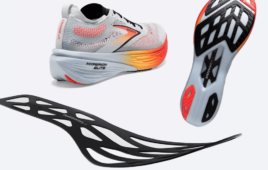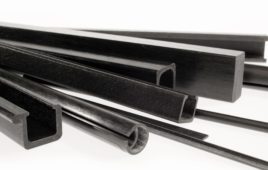
Image credit: Australian Research Council Centre of Excellence for Electromaterials Science
This “smart fabric” can expand and contract in reaction to movement, which could be useful in manufacturing robots or lab-on-chip devices.
The mix of carbon nanotubes and Lycra fibres was developed at the Wollongong University’s ARC Centre of Excellence for Electromaterials Science (ACES) in Australia and the University of Texas in Dallas, and was covered by the Institute of Engineering and Technology magazine on Oct. 12.
“We have already made intelligent materials as sensors and integrated them into devices such as a knee sleeve that can be used to monitor the movement of the joint, providing valuable data that can be used to create a personalized training or rehabilitation program for the wearer,” said lead researcher Javad Foroughi of ACES. “Our recent work allowed us to develop smart clothing that simultaneously monitors the wearer’s movements, senses strain, and adjusts the garment to support or correct the movement.”
The smart textile is made of 3D carbon nanotubes knitted together. By leveraging its mechanical work capacity, it can exert force greater than what human muscles can produce.
For the first application, the Wollongong University researchers are using the smart textile to create the knee sleeve, as well as a wearable antennae. They also envision scaling it up to produce medical rehabilitation tools or other devices at an industrial scale.
The project is funded by the associated universities, with collaboration facilitated by ACES. It was announced last month in the American Chemical Society journal.
Filed Under: Materials • advanced




